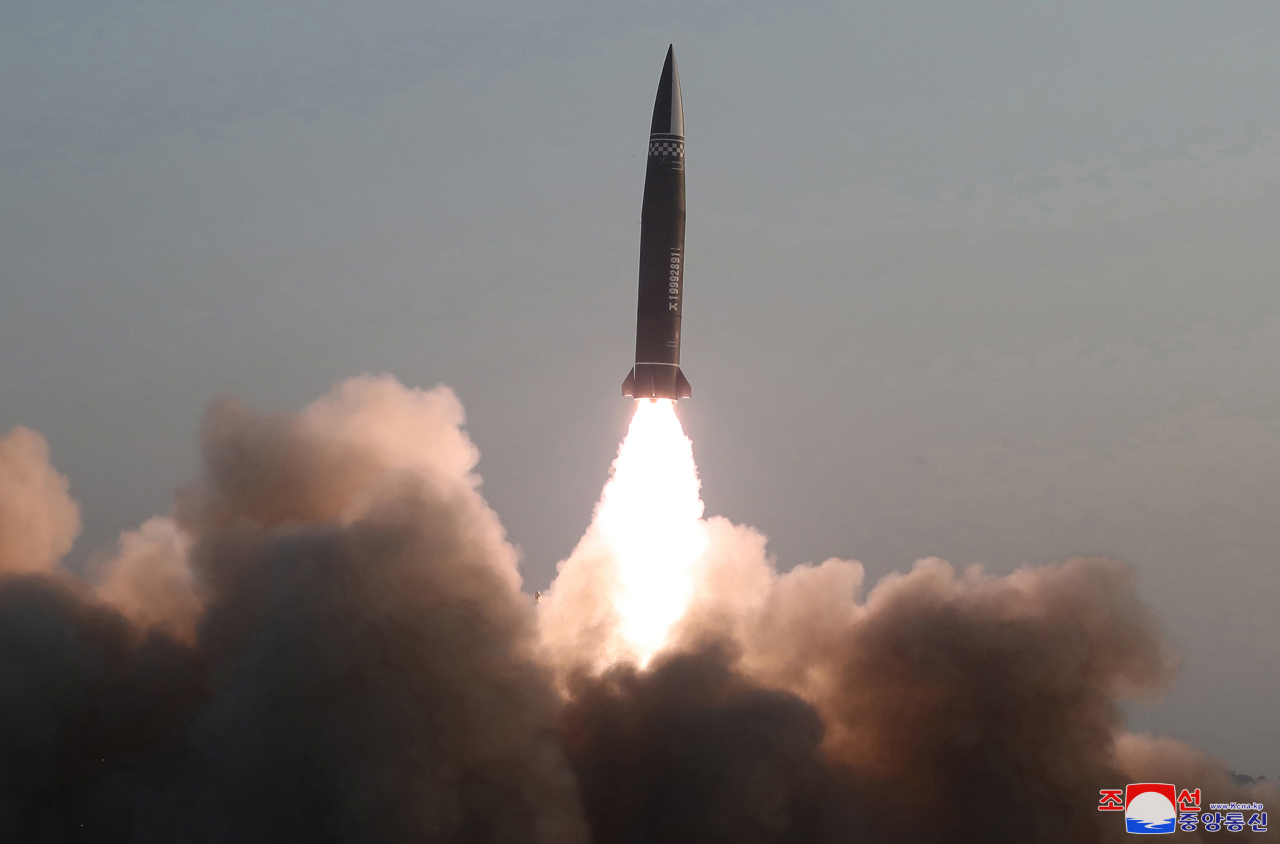
UNITED NATIONS (AP) -- The UN Security Council took no action after a brief meeting Tuesday on North Korea’s latest ballistic missile tests, the first since US President Joe Biden took office on Jan. 20 and a violation of UN sanctions.
Council diplomats said all 15 members encouraged dialogue and negotiations on North Korea‘s nuclear program but disagreed on the need for a statement. Last Friday, the council unanimously adopted a resolution to renew the mandate of UN experts monitoring sanctions against the North. Hours earlier, the 15 council members discussed Pyongyang’s latest test firings at a sanctions committee meeting.
On Tuesday, Russia and China both mentioned their proposed December 2019 resolution, UN diplomats said, speaking on condition of anonymity because the meeting was private. It would terminate sanctions on North Korean exports such as textiles, seafood and statues, "with the intent of enhancing the livelihood of the civilian population."
The Russia-China draft resolution has languished, and whether the Security Council takes any action remains to be seen.
Russia‘s deputy UN ambassador Dmitry Polyansky told a group of reporters Tuesday "it’s still a time of assessment" of the recent missile tests.
US Ambassador Linda Thomas-Greenfield said Monday the Biden administration is looking at "additional actions" that the United Nations might take to respond to the latest tests, but she wasn‘t specific about what those actions might entail.
Last week, North Korea fired two short-range ballistic missiles into the sea in defiance of UN resolutions banning such launches. Some experts said the launches, the first of their kind in a year, were aimed at applying pressure on the Biden administration which is finalizing a review on how to approach the reclusive north Asian nation.
On Monday, North Korea accused the UN of a "double standard" over its reaction to the launches, warning of serious consequences.
France’s UN Ambassador Nicolas De Riviere tweeted Tuesday: "Today at the Security Council, I recalled that North Korea‘s recent ballistic missile launches violate Security Council resolutions. The continued development of (hash)NKorea’s missiles and nuclear programs constitutes a major threat to international peace and security."
US Secretary of State Antony Blinken, who recently returned from Tokyo and Seoul, said Monday the US, Japan and South Korea are united in dealing with the challenges posed by Pyongyang.
"What we‘re seeing from Pyongyang in terms of these provocations does nothing to shake the resolve of our three countries along with allies and partners around the world to approach North Korea from a position of strength in order to diminish the threat that it poses to the region and beyond," Blinken said.
Past short-range missile launches by North Korea have typically drawn UN Security Council condemnations, but not fresh sanctions.
North Korea has been hit with increasingly tough sanctions since its first nuclear test in 2006. The latest rounds in 2017 responded to its first successful tests of intercontinental ballistic missiles capable of reaching the United States and its sixth and strongest nuclear test.
The sanctions have banned key exports including coal and the import of an estimated 90 percent of refined oil products including diesel and kerosene which are key to its economy. UN experts monitoring the sanctions have reported widespread violations by North Korea.








![[KH Explains] How should Korea adjust its trade defenses against Chinese EVs?](http://res.heraldm.com/phpwas/restmb_idxmake.php?idx=644&simg=/content/image/2024/04/15/20240415050562_0.jpg&u=20240415144419)











![[Today’s K-pop] Stray Kids to return soon: report](http://res.heraldm.com/phpwas/restmb_idxmake.php?idx=642&simg=/content/image/2024/04/16/20240416050713_0.jpg&u=)